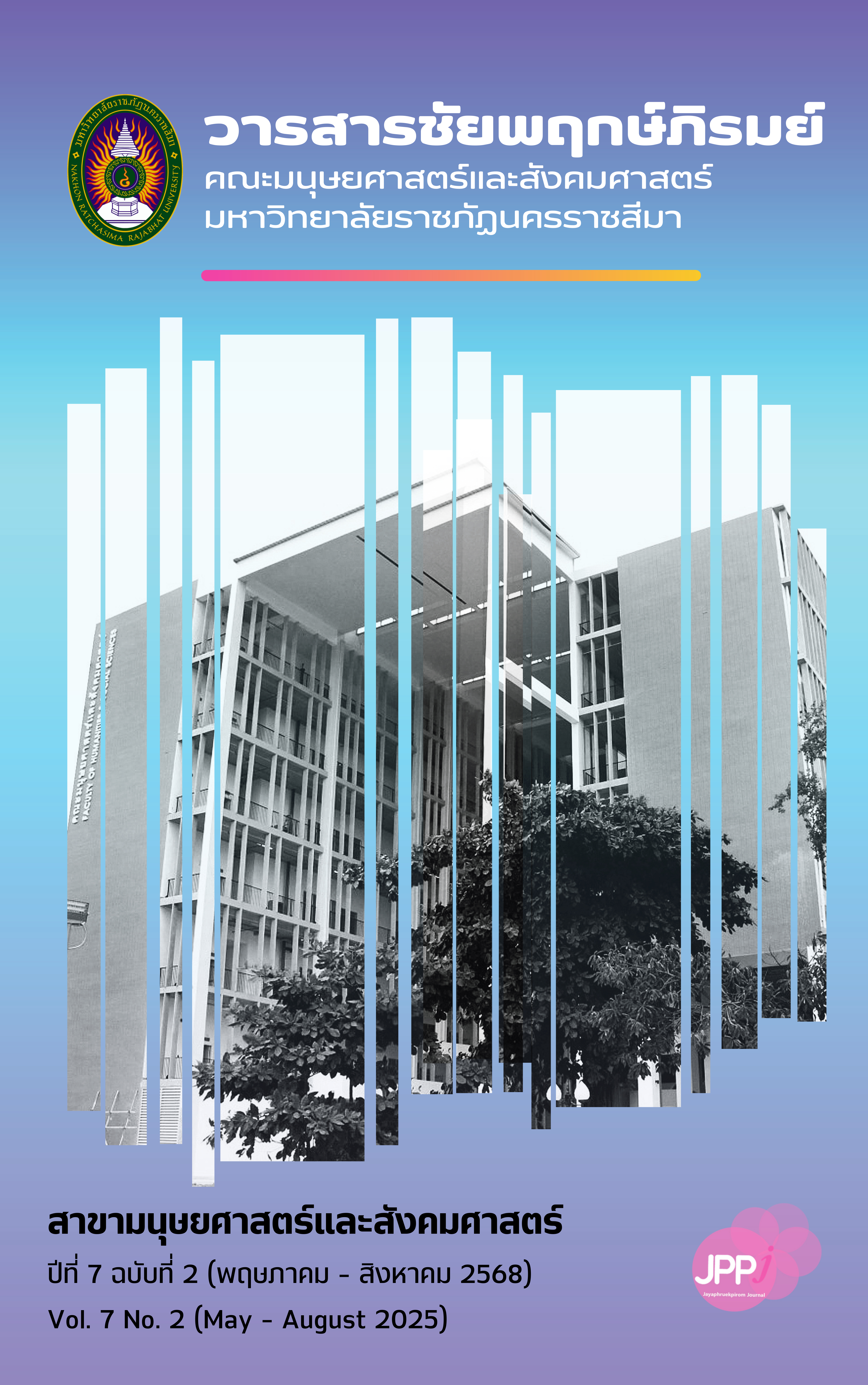Integrating Multimodal and Technology-Enhanced Approaches in ESP Instruction for Hospitality and Tourism: A Meta-Analytic Perspective
Keywords:
Multimodal Learning, English for Specific Purposes (ESP), Hospitality and Tourism Education, Technology-Enhanced Learning, Meta-AnalysisAbstract
This study aims to analyze the impact of multimodal approaches and technology on the instruction of English for Specific Purposes (ESP) in hospitality and tourism management. Utilizing a meta-analysis methodology, the study synthesizes data from relevant research published in peer-reviewed journals. It focuses on evaluating the effectiveness of technologies such as Virtual Reality (VR), gamification, mobile applications, and online platforms in enhancing learner engagement, retention, and language skill development within the context of hospitality and tourism. The findings reveal that these technologies significantly improve learner engagement by creating diverse and immersive learning experiences, such as simulating real-world scenarios in hotels or airports. Additionally, mobile applications provide flexible and effective opportunities for self-directed learning. However, challenges remain, including the high costs of acquiring technology, a shortage of personnel with technical expertise, and limited accessibility for learners in under-resourced areas. This study offers recommendations for educators and industry trainers on integrating multimodal approaches into curricula to enhance the effectiveness of ESP instruction. It also emphasizes the importance of providing necessary resources to support multimodal learning across various contexts. The findings underscore the potential for advancing ESP pedagogy through these innovations, paving the way for future development in language instruction methodologies.
References
รุจิรา ศรีสุภา, ศศิธร หวังค้ำกลาง, & วีรวัฒน์ บุญมา. (2565). การพัฒนาบทเรียนอิเล็กทรอนิกส์ร่วมกับการจัดการเรียนการสอนตามรูปแบบ T5 โมเดล ชุดภาษาและวัฒนธรรมจีน. วารสารชัยพฤกษ์ภิรมย์, 4(1), 55–67.
ศศิธร หวังค้ำกลาง & สกุล วงษ์กาฬสินธุ์. (2566). การพัฒนาแผนที่แหล่งเรียนรู้อิเล็กทรอนิกส์ทางด้านศิลปะ วัฒนธรรม และประเพณี. วารสารชัยพฤกษ์ภิรมย์, 5(2), 22–35.
สาธิตา สังข์พงษ์. (2562). การพัฒนาทักษะการอ่านภาษาอังกฤษโดยใช้นิทานพื้นบ้านของนักศึกษาสาขาวิชาภาษาอังกฤษ มหาวิทยาลัยราชภัฏเทพสตรี. วารสารวิชาการคณะมนุษยศาสตร์และสังคมศาสตร์ มหาวิทยาลัยราชภัฏนครราชสีมา, 1(1), 35–48.
โสภิดา โมงกระโทก & มานิตย์ อรรคชาติ. (2566). ความคาดหวังต่อการเรียนออนไลน์ของนักศึกษาระดับปริญญาตรี คณะครุศาสตร์ มหาวิทยาลัยราชภัฏนครราชสีมา. วารสารชัยพฤกษ์ภิรมย์, 5(1), 15–30.
AlTameemy, F. A., & Alrefaee, Y. (2021). Impact of Covid-19 on English language teaching in Yemen: Challenges and opportunities. SSRN. https://doi.org/10.2139/ssrn.3856436
Akpan, I. J., Offodile, O. F., Akpanobong, A. C., & Kobara, Y. M. (2024). A comparative analysis of virtual education technology, e-learning systems research advances, and digital divide in the Global South. Informatics, 11(3), 53. https://www.mdpi.com/2227-9709/11/3/53
Bellés Calvera, L. (2024). Innovative teaching in ESP: The unexplored potential of AI-generated visuals in tourism language instruction. Universitat de València Repository. https://roderic.uv.es/items/4393dbc3-7778-4883-8f2c-03b7e22192bf
Boeru, M. (2023). Aspects of gamification in the ESP program for maritime students. Scientific Bulletin of Naval Academy, 26(1), 83–88. https://doi.org/10.21279/1454-864X-23-I1-009
Chang, Y., Wang, X., Wang, J., Wu, Y., & Yang, L. (2024). A survey on evaluation of large language models. ACM Digital Library. https://doi.org/10.1145/3641289
Choi-Lundberg, D. L., & Butler-Henderson, K. (2023). A systematic review of digital innovations in technology-enhanced learning designs in higher education. Australasian Journal of Educational Technology, 39(3), 1–22. https://ajet.org.au/index.php/AJET/article/view/7615
Christou, E., Parmaxi, A., & Christoforou, M. (2025). Implementation and application of extended reality in foreign language education for specific purposes: A systematic literature review. Universal Access in the Information Society. https://doi.org/10.1007/s10209-025-01191-w
Hockly, N., & Dudeney, G. (2018). Current and future digital trends in ELT. RELC Journal, 49(2), 164–178. https://doi.org/10.1177/0033688218777318
Hsu, K. C., Barrett, N. E., & Liu, G. Z. (2023). English for tourism and AR-assisted context-aware ubiquitous learning: A preliminary design-based research study. Computer Assisted Language Learning. https://doi.org/10.1080/09588221.2023.2202701
Ishak, N., Noordin, N., & Ismail, L. (2023). Development, validity, and reliability of a theme-based CBI vocabulary module for ESL post-secondary tourism management students at an English-medium university. SSRN. https://papers.ssrn.com/sol3/papers.cfm?abstract_id=4593930
Oliveira, W., & Hamari, J. (2025). Flow Experience in Gameful Approaches: A Systematic Literature Review, Scientometric Analysis, and Research Agenda. International Journal of Human–Computer Interaction. DOI: 10.1080/10447318.2025.2470279
Santosa, M. H., & Antari, N. K. P. (2023). Investigation of hospitality and business school English instructors’ TPACK in the online learning context. Journey: Journal of English Language and Pedagogy, 6(3), 671–681. Retrieved from http://ejurnal.uibu.ac.id/index.php/journey/article/download/714/564
Stevani, M. S., Yanti, N., & Hidayat, I. M. (2024). Developing interactive multimedia-based ESP to improve English proficiency and career guidance at UPMI Medan. English Review: Journal of English Education, 12(3), 893–896. https://doi.org/10.25134/erjee.v12i3.10555
Yan, H. (2025). Trends in empirical research in English for Specific Purposes: A systematic review of SSCI-indexed journal articles (2014–2023). SAGE Open. DOI: 10.1177/21582440251328460
Zarghami, Z., Khoii, R., & Rashtchi, M. (2022). Effects of multimedia learning on language learners' self-regulation and cognitive load in an ESP context: A mixed methods study. SSRN. https://papers.ssrn.com/sol3/Delivery.cfm?abstractid=4203408


